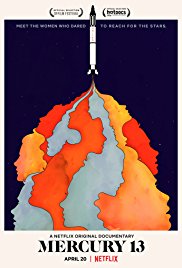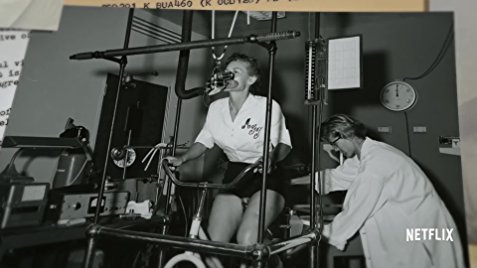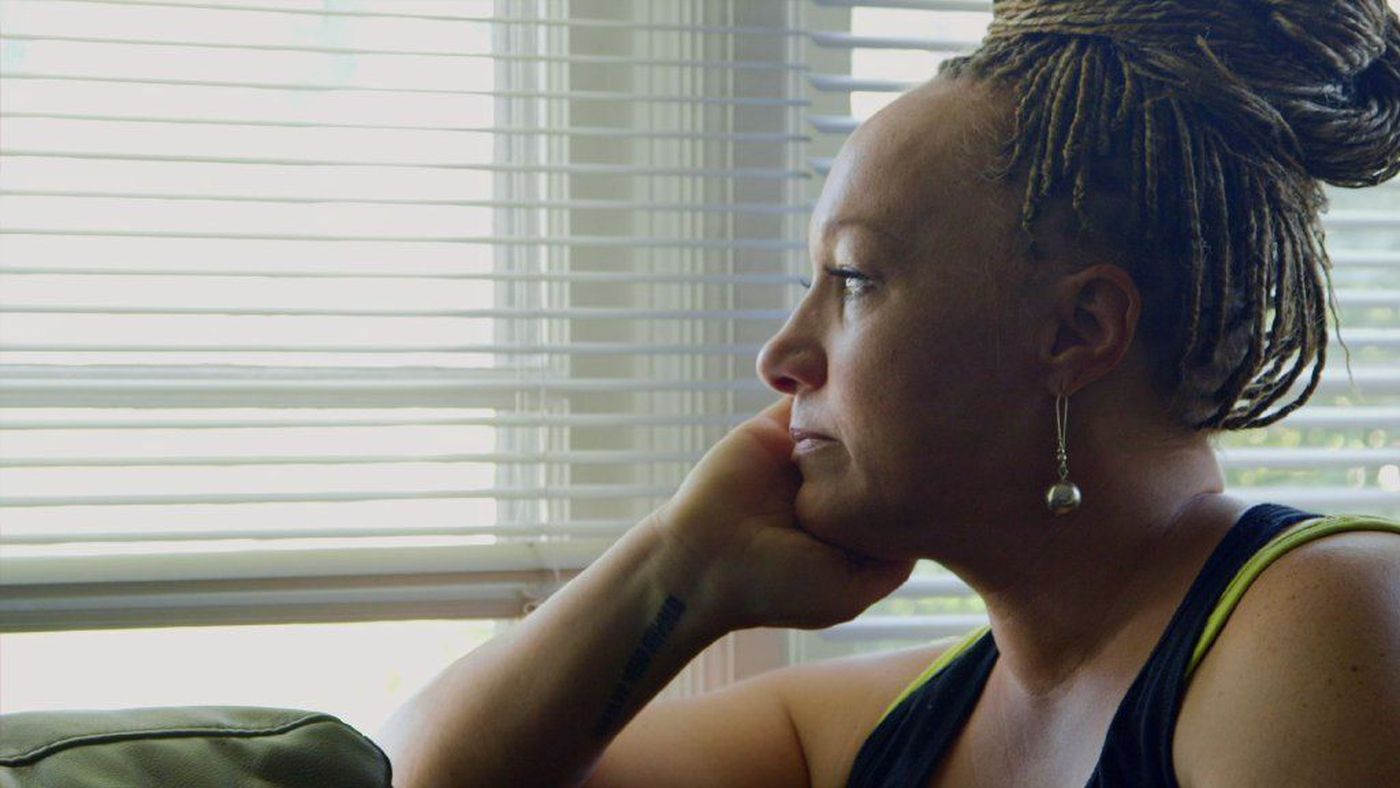Doc Corner: Women Astronauts and Rachel Dolezal on Netflix
 Tuesday, May 1, 2018 at 12:01PM
Tuesday, May 1, 2018 at 12:01PM By Glenn Dunks
 “That’s one small leap for a woman, another giant step for mankind” is how Mercury 13 opens. Ignore that it is probably the teensiest bit too twee of a means to open a movie – and also doesn’t make much sense in so far as what they’re referencing – and consider for a moment what could have been. David Sington and Heather Walsh’s film isn’t one of speculative fiction, but rather the untold story of the women who partook in a NASA program.
“That’s one small leap for a woman, another giant step for mankind” is how Mercury 13 opens. Ignore that it is probably the teensiest bit too twee of a means to open a movie – and also doesn’t make much sense in so far as what they’re referencing – and consider for a moment what could have been. David Sington and Heather Walsh’s film isn’t one of speculative fiction, but rather the untold story of the women who partook in a NASA program.
In many ways, Mercury 13 feels like a blueprint for a feature narrative drama film. Watching the doc and one can almost see it playing out with actors like Emma Stone in the roles of these determined women who took to the skies and played an important part in the war efforts before being recruited for a secret mission to test whether women were fit for space travel. I have no doubt that the mammoth success of Hidden Figures played a big part in getting this documentary up at a place like Netflix rather than on PBS where its otherwise rather genteel and neatly polished form would fit right in. Lo and behold, there has indeed been a television miniseries announced about the story.

Mercury 13 is brief at only 80 minutes, which only underlines its unassuming and modest ambitions. Featuring most of the living parties involved and the families of those since deceased, it’s a sweetly fond ode to their tenacity and their spirit. With some gorgeous aerial photography intertwined with sweeping space footage, Sington and Walsh’s visual craft is often more noteworthy than their shaping of narrative, which never strays far from a standard point-a-to-point-b form of storytelling. It’s certainly never as playful or majestic as Al Reinart’s 1989 Oscar-nominated For All Mankind, or last year’s thrilling quietly awe-inspiring The Farthest. However, culminating in the story of the first woman to pilot a shuttle into space, it’s a valuable reminder of the role women have played in many of man’s most foolhardy and important pursuits.
One could get whiplash then from switching gears to The Rachel Divide, a documentary as seemingly clueless about its lead subject as she is herself. As if you couldn’t tell from the pun in its title – yes, that really is meant to sound like “the racial divide” – this documentary about Rachel Dolezal, the white woman from Spokane who identifies as a “transracial” black woman, is trying to stoke flames by its mere existence.
That Laura Brownson’s film exists isn’t the issue so much for (although it is for others) as there have been plenty of films made attempting to grapple with understanding a controversial figure. The issue here is that it doesn’t actually work in any way. By focusing exclusively on Dolezal, one would have hoped to have gotten a better grasp of her own understanding of the subject. And yet through to-camera confessionals, television interviews and in on-the-fly observations, she offers no real clarity, skipping between talking points without ever grappling with what she's saying. Perhaps that's to be expected; her recollections of her childhood are genuinely traumatic so it's a little unsurprising she has less of a connection to the term "blood is thicker than water". But still, for somebody who has spent so much time talking about this, by film's end I felt it made no more sense than when it started.

The fault isn’t all Dolezal’s, however. Brownson misses some pretty big chances to probe her subject with more deeper attention that has been offered in the past. The departure of her son goes unexplored despite his appearance throughout as one of the lone moments of sympathetic engagement with the film. And how did Brownson insert the scene of Dolezal legally changing her name to Nkechi Amare Diallo and not sit her down for a big long chat about that I do not know.
Additionally, nobody is helped by a seemingly throwaway moment that attempts to address Dolezal’s supposed transracial identity with that of transgender individuals. Using clips from Bill Maher and TMZ’s Harvey Levin to raise the point, yet in no way actively engage with it makes for perhaps the film’s most offensive sequence. It’s flippant and crass and I think the filmmaker knows it. But then, the whole film is like that. Rarely interested in voices from the other side, The Rachel Divide simultaneously fails both side of the argument. And then to top it all off, the film ends with a sequence of Dolezal putting on her curly black wig and face-darkening make-up set to a sombre cover version of David Bowie’s “Life on Mars”, all done with a straight face. It’s just one final perplexing moment in a documentary that’s full of them.
Release: Both are now streaming worldwide on Netflix
Oscar chances: Slim for Mercury 13, although it could conceivably pick up some fringe attention like last year's Bombshell: The Hedy Lamarr Story and hopefully more eyes will see it if people flip for Damien Chazelle's First Man. As for The Rachel Divide... how about not a chance.
 Doc Corner,
Doc Corner,  First Man,
First Man,  Hidden Figures,
Hidden Figures,  Netflix,
Netflix,  Review,
Review,  documentaries
documentaries 


Reader Comments (2)
There is no such thing as "transracial" person. She might identify with black culture but this does not make her black.
Jaragon, which is why I put it in "s. I think it's bullshit. Unfortunately the film doesn't really make a claim for or against it.